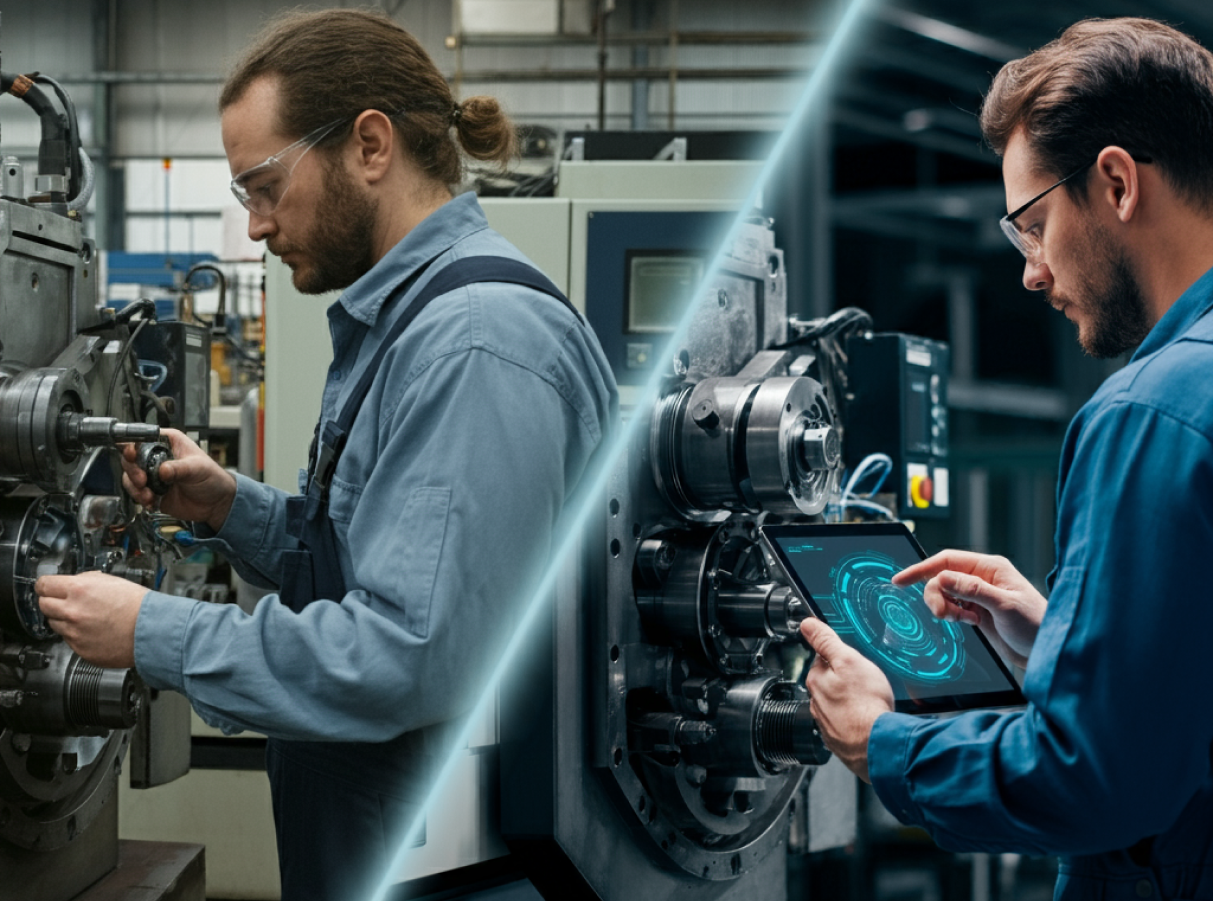The manufacturing industry is facing a pressing labor shortage, with many companies struggling to attract and retain skilled frontline workers. Several factors contribute to this challenge, including an aging workforce, increased competition from other industries, limited growth of vocational training and the perceived unattractiveness of the job opportunities available to new workers. Digital technologies, like frontline connected worker platforms, are emerging as powerful tools for manufacturing companies to help attract, develop and retain workers. These digital tools, which enhance communication, streamline processes and data capture, provide on-the-spot training, and facilitate real-time knowledge, can also enhance the onboarding experience, improve job satisfaction, and offer career development opportunities as they make the workplace more efficient and safer for employees.
Attracting a New Generation of Manufacturing Workers
A benefit of digital connected worker technologies in manufacturing is its use in the recruitment process for workforce talent, particularly with younger workers who have grown up with technology and expect similar tools in the workplace. These digital natives are drawn to employers who invest in innovation and offer cutting-edge technologies that streamline work. Manufacturing companies that implement smart devices, augmented reality (AR), and mobile applications for tasks like work instruction, quality inspection, and equipment maintenance gain a competitive advantage in attracting the best talent.
Improving the Onboarding Experience
Onboarding can be a daunting process for new hires in manufacturing, where complex machinery and processes often require long training periods. Traditionally, onboarding has been time-consuming and resource-intensive, relying on paper manuals and in-person mentorship. According to studies by ISG Research, it typically takes six to nine months to fully onboard a new employee. However, research showed that with the use of digital tools, that timeframe can be reduced to three to six months, helping manufacturers get new hires up to speed more quickly
Connected worker apps and digital work instructions provide step-by-step guides that employees can access in real-time, making it easier for them to learn tasks quickly, follow standardized procedures and reduce the likelihood of errors. Interactive digital tools, such as augmented reality (AR) and virtual reality (VR), allow new employees to learn by immersing themselves in realistic, simulated environments. Deloitte research showed that roughly 50% of workers preferred access to training on the spot over standard classroom training, not only accelerating the onboarding process but also improving the experience which increases retention.
Enhancing Job Satisfaction
One of the key ways digital technologies improve retention is by empowering employees to perform their tasks more effectively. A common challenge for frontline workers is dealing with repetitive tasks using antiquated tools and processes. A survey by Microsoft showed that 36% of manufacturing workers felt that they did not have the right technology tools to do their job effectively. Digital technologies, like connected worker platforms, automate data collection and provide workers with real-time data, visual instructions, and safety alerts, enabling them to make faster and more informed decisions. Job satisfaction is crucial to retaining frontline workers, and technology can play a significant role in making them more effective and their jobs more fulfilling
Improving Safety in the Manufacturing Workplace
Safety is a top priority in any manufacturing environment and can be a top factor when workers are considering joining or remaining with a manufacturer’s workforce. Digital technologies can greatly enhance workplace safety. These tools can provide real-time alerts about equipment malfunctions or hazardous conditions, ensuring that workers are immediately informed of any risks. Digital checklists help facilitate compliance with safety protocols, while remote assistance allows supervisors to provide immediate guidance to workers. Wearable devices can provide real-time data on environmental conditions, such as air quality or warn of proximity to hazards, and can also monitor health indicators, such as heart rate and body temperature to ensure safety thresholds are not exceeded. By fostering a safer work environment, manufacturers not only protect their workers but also boost overall morale and job satisfaction.
Expanding Career Development Opportunities
Frontline workers in manufacturing, especially younger generations, increasingly value career growth and continuous learning. Digital technology enables manufacturers to offer training and development opportunities beyond the onboarding period that increase employees’ skills and open up new career paths.
Digital platforms provide workers with the flexibility to access training on-demand, allowing them to develop new competencies at their own pace. Technologies such as AR and VR can also be used for more advanced training, teaching workers how to operate complex machinery or repair equipment in virtual environments. This enables frontline workers to learn new skills without the risks associated with training on live equipment. By offering these upskilling opportunities, manufacturers can promote skills development and bridge the skills gaps left by retiring workers, and enable the professional development that helps companies retain workers by offering pathways for career advancement.
Gaining a Digital Advantage For Talent Management
Attracting and retaining frontline workers in manufacturing requires more than just competitive wages. By adopting frontline digital technologies, manufacturers gain a strategic advantage in attracting and retaining skilled workers by offering a more appealing and supportive work environment that enhances job satisfaction, provides career development opportunities and improves safety. Embracing these technologies not only helps manufacturers stay competitive, but also ensures that their workforce remains engaged, skilled, and committed to long-term growth.



